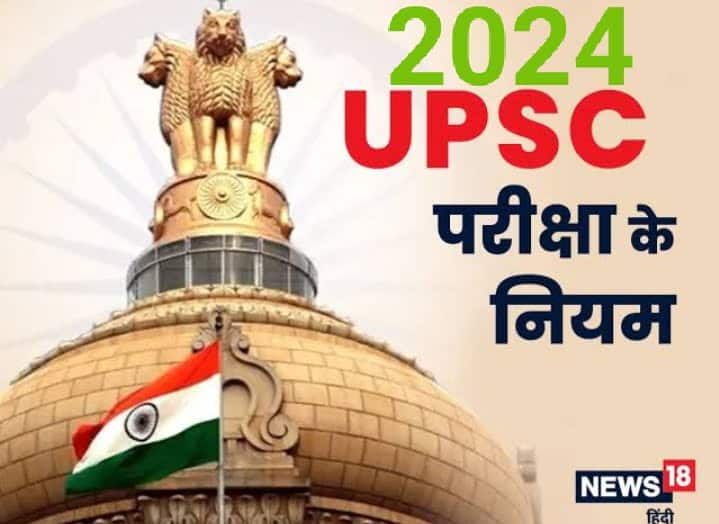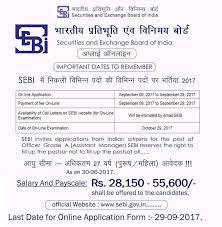The Union Public Service Commission (UPSC) examination stands as a pivotal gateway for aspirants looking to join the prestigious civil services in India. Aspiring candidates delve into a rigorous preparation regime, but equally crucial is a profound comprehension of the intricate upsc examination rules.

upsc examination rules
1. Types of Exams and Eligibility Criteria:- The UPSC conducts various exams, notably the Civil Services Examination (CSE), Engineering Services Examination (ESE), Combined Defence Services Examination (CDS), and more. Each exam has distinct eligibility criteria based on age, educational qualifications, and nationality, serving as the initial checkpoint for aspirants.
2. Syllabus and Exam Pattern:- Understanding the prescribed syllabus is fundamental. The CSE, for instance, encompasses three stages – Preliminary Examination, Main Examination, and Personality Test (Interview). Each stage has a defined syllabus and format, demanding a strategic approach in preparation.
3. Examination Conduct Norms:-UPSC holds strict guidelines for examination conduct. Candidates must adhere to regulations concerning permissible items, dress codes, and behavioral expectations within examination premises. Any deviation from these norms may lead to disqualification.
4. Reservation Policies and Relaxation:- The Commission also implements reservation policies for candidates from scheduled castes, tribes, other backward classes, and economically weaker sections. Additionally, certain relaxations in age limits or attempts are available for specific categories, aiming to provide equal opportunities.
5. Ethics and Integrity:- Upsc places significant emphasis on ethics and integrity. Aspirants are expected to maintain high ethical standards throughout the selection process, and any form of malpractice or dishonest behavior can result in severe consequences.
6. Examination Results and Appeals:- Upon the conclusion of each stage, results are declared, and successful candidates proceed to the subsequent level. However, the UPSC also allows for the submission of representations or appeals against discrepancies in the evaluation process.
7. Continuous Updates and Reforms:- The Commission periodically revises its rules and patterns to adapt to changing dynamics, ensuring fairness, transparency, and relevance in the examination process.
8. Time-bound Procedures:- UPSC mandates adherence to strict timelines for application submission, fee payment, and other procedural formalities. Missing deadlines can lead to disqualification, emphasizing the need for careful planning and timely action.
9. Examination Centers and Code of Conduct:- Candidates must select their preferred examination centers while abiding by the code of conduct at these venues. Following instructions regarding reporting time, electronic gadgets, and conduct within the premises is imperative.
10. Probity in Application and Documentation:- From accurately filling out application forms to submitting essential documents, maintaining probity in paperwork is crucial. Any discrepancy or false information can lead to disqualification or even punitive action.
11. Confidentiality and Security Measures:- UPSC ensures the confidentiality of the examination process through stringent security measures. Candidates must respect the sanctity of exam materials, including question papers and answer sheets, to uphold the integrity of the evaluation process.
12. Accessibility and Accommodations:- The Commission strives to make the examination accessible to all by providing accommodations for candidates with disabilities or specific needs. Guidelines regarding such accommodations are outlined in the examination rules for equitable participation.
13. Post-Examination Protocol:- After the examination, candidates must refrain from discussing the paper’s content publicly or sharing insights that could compromise the exam’s integrity. UPSC’s guidelines extend beyond the examination hall, emphasizing ethical behavior in all aspects.
14. Continuous Compliance and Updates Aspiring:- candidates should continuously review UPSC’s official notifications, rule changes, and clarifications released by the Commission. Staying updated ensures compliance with the latest guidelines and avoids inadvertent rule violations.
15. Examination Malpractice and Consequences:- Upsc maintains a zero-tolerance policy towards malpractice during examinations. Any form of cheating, using unfair means, or attempting to influence the examination process can lead to severe penalties, including disqualification and legal repercussions.
16. Guidelines for Interviews/Personality Test:- Candidates who qualify for the interview/personality test stage must follow specific guidelines. These include dress codes, behavioral expectations, and respecting the interview board’s decorum. The interview stage assesses not only knowledge but also the candidate’s personality traits and suitability for administrative roles.
17. Dispute Resolution Mechanisms:- UPSC has mechanisms in place to address candidate grievances or disputes regarding the examination process. Aspirants can submit representations or appeals within specified timelines, providing a channel for addressing concerns or discrepancies.
18. Code of Ethics for Aspirants:- Aspiring civil servants are expected to maintain the highest standards of ethics and integrity. This involves refraining from activities that may compromise the examination’s sanctity, engaging in fair practices, and respecting fellow candidates’ rights.
19. Preparation Guidelines:- While not explicit rules, UPSC often provides guidelines or recommended strategies for preparation. These can include suggested reading materials, study plans, and insights into the examination pattern, assisting aspirants in preparing effectively.
20. Post-Selection:- Protocols selection, candidates are required to adhere to specific protocols concerning training, reporting, and subsequent administrative procedures. Understanding these post-selection guidelines is essential for a smooth transition into the civil services.
21. Ongoing Updates and Communication:- UPSC regularly communicates with aspirants through official notifications, circulars, and updates on its website. Staying informed about these communications is crucial, as they often contain vital information about rule changes, exam dates, or procedural modifications.
The UPSC examination rules encompass a comprehensive framework essential for aspirants aiming to embark on a career in the civil services. Comprehending, internalizing, and strictly adhering to these rules not only ensures a smooth examination process but also reflects an aspirant’s commitment to the ethical standards expected in administrative roles.


